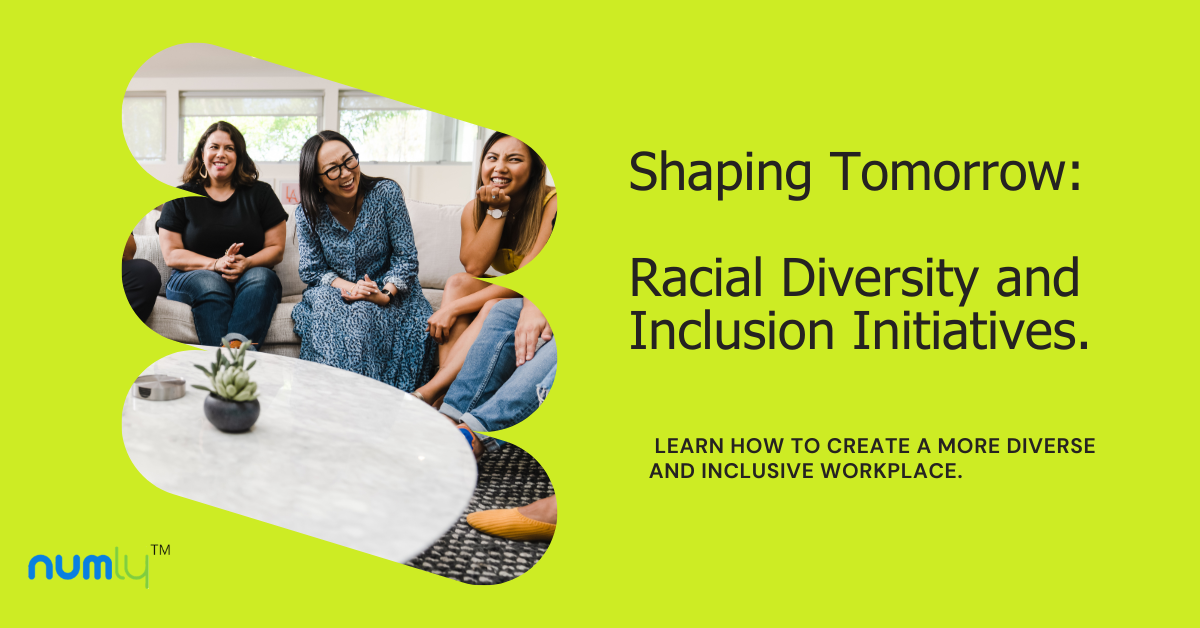After a bad day, negativity clouds your mind. You were late for work, spilled coffee on your favorite white shirt, and were stuck late in a meeting. When you’re already feeling down, every minor inconvenience might feel like a major problem. In the moment, it can be hard to see the bright side. You may default to negative self-talk, saying, “I’ll never get out of this situation,” or “Nothing good ever happens to me.” These pessimistic thoughts can become automatic, a narrative that dominates your inner monologue. The negativity doesn’t stop there. Pessimistic thinking can spur a chain reaction of unsavory emotions and behaviors — and none of them help you see a way out of a difficult moment. But what if you could turn that thinking around? Maintaining a positive mindset allows you to face challenges resiliently, focus on solutions, and see the silver lining, even on those days when it feels like nothing will go right.
Understanding Racial Diversity and Inclusion
At the core of the workshop lies the fundamental understanding of racial diversity and inclusion. Racial diversity encompasses the presence of individuals from various racial backgrounds within a particular setting, be it an organization, community, or educational institution. However, mere representation is not enough. True diversity is about creating an environment where individuals feel valued, respected, and empowered regardless of their race or ethnicity. This is where inclusion comes into play – it’s about actively involving and embracing diverse perspectives, experiences, and identities.
- Representation: Ensure diverse representation within organizations, communities, and educational institutions.
- Inclusion: Actively involve and embrace diverse perspectives, experiences, and identities.
The Need for Dialogue and Awareness
One of the primary objectives of the Racial Diversity and Inclusion initiative is to facilitate open and honest dialogue about race-related issues. In many cases, there’s a hesitancy to broach topics surrounding race due to fear, discomfort, or lack of understanding. However, silence only perpetuates ignorance and perpetuates systemic inequalities. Workshops provide a safe space for participants to engage in meaningful conversations, share their experiences, and gain insights into different perspectives. By fostering awareness and understanding, workshops lay the groundwork for meaningful change.
- Open Dialogue: Encourage open and honest conversations about race-related issues.
- Safe Space: Provide a safe environment for participants to share experiences and perspectives.
Challenging Implicit Bias and Stereotypes
Implicit biases and stereotypes are deeply ingrained societal constructs that influence our perceptions and behaviors, often without our conscious awareness. These biases can manifest in subtle ways, shaping our interactions and decision-making processes. The workshop aims to challenge these biases by promoting self-reflection and critical examination of preconceived notions. Through interactive exercises and discussions, participants confront their biases head-on and learn strategies to mitigate their impact. By confronting implicit bias, individuals can become more inclusive and equitable in their interactions.
- Self-Reflection: Encourage participants to reflect on their own biases and stereotypes.
- Critical Examination: Provide tools and exercises to challenge preconceived notions.
- Mitigation Strategies: Teach strategies to mitigate the impact of implicit bias.
Building Inclusive Practices and Policies
Creating a truly inclusive environment requires more than just lip service – it necessitates tangible action and structural changes. Workshops offer practical guidance on how organizations and institutions can implement inclusive practices and policies that foster diversity and equity. This may involve revising hiring practices to promote diversity, implementing diversity training programs, establishing support networks for underrepresented groups, and actively addressing instances of discrimination or bias. By embedding inclusivity into the fabric of an organization, workshops pave the way for long-term cultural transformation.
- Revising Hiring Practices: Promote diversity through inclusive hiring practices.
- Diversity Training Programs: Implement programs to educate and raise awareness.
- Support Networks: Establish networks to support underrepresented groups.
- Addressing Discrimination: Actively address instances of discrimination or bias.
Empowering Change Agents
Ultimately, the success of efforts to promote racial diversity and inclusion depends on the commitment and engagement of individuals at all levels of society. The Racial Diversity and Inclusion Workshop empowers participants to become change agents within their respective spheres of influence. Armed with knowledge, awareness, and practical strategies, attendees are equipped to advocate for equity, challenge systemic barriers, and promote a culture of inclusivity. By fostering a community of empowered allies and advocates, workshops catalyze broader societal change and pave the way for a more equitable future.
- Knowledge and Awareness: Equip participants with knowledge and awareness.
- Advocacy for Equity: Empower individuals to advocate for equity and inclusion.
- Cultural Transformation: Foster a culture of inclusivity and diversity.
Sustaining Momentum and Continuous Improvement
While workshops serve as catalysts for change, it’s essential to recognize that diversity and inclusion efforts are ongoing processes. Sustaining momentum requires a commitment to continuous learning, evaluation, and adaptation. Workshops can provide follow-up sessions, resources, and networking opportunities to support participants in their journey towards greater inclusivity. Additionally, organizations must embed diversity and inclusion principles into their strategic planning and day-to-day operations to ensure lasting impact. By fostering a culture of continuous improvement, workshops contribute to the long-term sustainability of diversity and inclusion initiatives.
- Follow-Up Sessions: Provide follow-up sessions to reinforce learning and progress.
- Resources and Networking: Offer resources and networking opportunities for ongoing support.
- Embedding Principles: Integrate diversity and inclusion principles into organizational operations.
Conclusion
The Racial Diversity and Inclusion Workshop serves as a beacon of hope in the ongoing struggle for racial equity and justice. By fostering dialogue, challenging biases, and promoting actionable change, these workshops play a crucial role in shaping tomorrow’s landscape of diversity and inclusion. As we strive towards a more just and equitable society, let us embrace the opportunity to learn, grow, and work together towards a brighter future for all.
Connect with us to see how you can build leaders who inspire others and bring about positive change for all around them.

